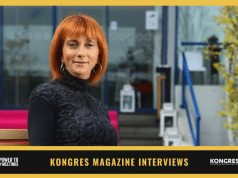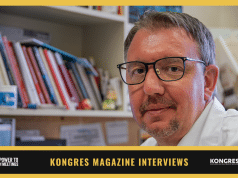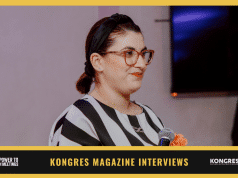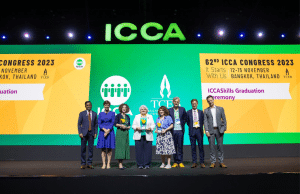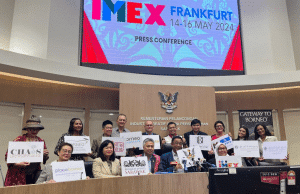“meeting planners are understanding that their role is far greater than simply organising the logistics of an event”
CARINA BAUER, CEO IMEX Group
Carina Bauer is the CEO of IMEX Group, a family business which runs the most influential tradeshows of the meetings industry – IMEX in Frankfurt and IMEX America. Having studied Politics, Philosophy and Economics at Oxford University, Carina entered the meetings industry in 2002, following a short career in retail and catering. Starting as the Marketing and Operations Director, Carina was promoted to the role of CEO in 2009 and is responsible for managing all aspects of the business. In 2015 Carina was named as one of the 25 Most Influential People in the Meetings Industry by Successful Meetings Magazine, as well as one of the Top 25 Women in the Meetings Industry by M&C Magazine.
Q: What are the dynamics driving the meetings industry?
One of the key trends that we have seen over the past few years is the emergence of new destinations that are entering the industry. Destinations in Asia, Latin America and Africa are building world leading facilities and infrastructure and focussing hard on training to ensure that they are ready to host large conventions, meetings and incentive travel groups. This drives up competition, but also drives quality, innovation and standards.
We also see that the industry is being far more strategic in its thinking. Destinations understand more than ever that the benefits of meetings are far more than the sum of their parts – i.e. the benefits are not simply about direct economic spend in hotels and restaurants. Whilst this spend is important, it is the long-term effects that contribute to the development of their knowledge economies that are truly powerful. As a result sophisticated destinations are thinking hard about the type of meetings and conventions that would most benefit their core industries and promoting their destinations accordingly.
Meeting planners, too, are thinking more strategically than ever – as highlighted in MPI’s recent Meetings Outlook (Spring 2015). The report quotes Bill Voegeli, President of Association Insights, who says, “It takes opportunity, resources and the desire
to be able to think strategically, to consider how to improve relationships and to be smarter with how folks use the tools in their toolbox.” In short, meeting planners are understanding that their role is far greater than simply organising the logistics of an event – in fact the role of the meeting planner is now to ensure that the event meets an organisation’s objectives – whether that is sales growth, motivating a workforce or skills development.
Other key trends that we see include the rise and rise of technology in making meetings more effective, the mobilisation of communication, as well as a continued focus on meeting design.
Q: Why is the meetings industry important?
As explained above the meetings industry is an important driver of economic growth – both for the direct spend from meetings and events, as well as the residual development opportunities that the industry brings in terms of the development of knowledge economies and industries. In addition, the meetings industry is responsible for driving knowledge transfer, motivating workforces and promoting globalisation. In essence, our industry is responsible for bringing diverse people together in an effort to progress.
Q: How can we make the meetings industry more effective?
By always keeping our thoughts and actions focussed on the end goal – which is ‘what is the desired outcome of this event?’ and how can we ensure that the outcome is met in the best way possible. If we keep our minds set on the outcomes the industry as a whole will be much more effective and both governments and corporations around the world will understand more easily what it is that our industry does.



